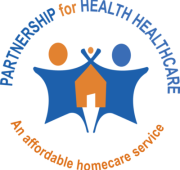Chronic pain is a common ailment among older adults. It can have a significant impact on their quality of life, causing physical, emotional, and social distress. Managing chronic pain in older adults can be challenging because of age-related changes in the body, increased medication sensitivity, and the presence of multiple comorbidities. In this article, we will discuss various strategies that can help manage chronic pain in older adults.
Understanding Chronic Pain
Chronic pain is defined as pain that lasts for more than three months. It can be caused by a variety of factors, including arthritis, cancer, nerve damage, or injuries. Chronic pain can affect multiple areas of the body and can be challenging to manage.
Assessing Chronic Pain
The first step in managing chronic pain is to assess its severity and impact on the individual’s life. A healthcare provider can use various tools to assess chronic pain, such as the pain intensity scale, the visual analog scale, or the brief pain inventory. These tools can help determine the level of pain, its location, and its impact on daily activities.
Medication Management
Medication management is an essential aspect of managing chronic pain in older adults. However, older adults are more sensitive to the effects of medication, which can increase the risk of adverse effects. Therefore, healthcare providers must carefully consider the risks and benefits of medications prescribed to older adults.
Non-Opioid Pain Management
Non-opioid pain management strategies can be effective in managing chronic pain in older adults. These include physical therapy, exercise, acupuncture, massage, and cognitive-behavioral therapy. Physical therapy and exercise can help improve mobility and reduce pain, while acupuncture and massage can help reduce tension and pain. Cognitive-behavioral therapy can help individuals manage their pain by changing their thoughts and behaviors.
Opioid Pain Management
Opioid pain management can be effective in managing chronic pain in older adults. However, healthcare providers must use caution when prescribing opioids to older adults because they are more susceptible to the adverse effects of these medications. Opioids can cause constipation, dizziness, confusion, and respiratory depression. Therefore, healthcare providers must carefully monitor the use of opioids in older adults.
Combination Pain Management
Combination pain management strategies can be effective in managing chronic pain in older adults. These include combining non-opioid pain management strategies with opioid pain management. This approach can help reduce the amount of opioid medication needed, which can reduce the risk of adverse effects.
Complementary and Alternative Medicine
Complementary and alternative medicine can be effective in managing chronic pain in older adults. These include herbal remedies, such as turmeric and ginger, and supplements, such as omega-3 fatty acids and vitamin D. However, healthcare providers must use caution when recommending complementary and alternative medicine because these treatments can interact with prescribed medications.
Psychological Interventions
Psychological interventions can be effective in managing chronic pain in older adults. These include relaxation techniques, such as deep breathing and guided imagery, and cognitive-behavioral therapy. Psychological interventions can help individuals manage their pain by changing their thoughts and behaviors.
Social Support
Social support can be effective in managing chronic pain in older adults. Social support can come from family, friends, and support groups. Social support can help individuals manage their pain by providing emotional support, practical assistance, and a sense of belonging.
Conclusion
Chronic pain can have a significant impact on the quality of life of older adults. Managing chronic pain in older adults can be challenging because of age-related changes in the body and the presence of multiple comorbidities. However, various strategies can help manage chronic pain in older adults, including medication management, non-opioid pain management, opioid pain management, combination pain management, complementary and alternative medicine, psychological interventions, and social support.
Home Care Near Me Let’s Get Started!
Get Immediate Help with Information, Costs & Payment Options.



Recent Comments